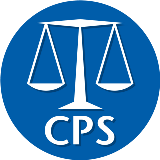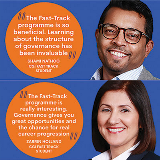*/

Christopher McNall (of farms and farmland fame) and Stephanie Wickenden (curator of an art law specialism) describe how they discovered their niche practices with tips for developing yours
My practice mainly involves farms and farmland – tenancy disputes under the Agricultural Holdings Act 1986, proprietary estoppel and Inheritance Act 1975 claims, and the dissolution of family farming partnerships. Here are my tips for developing your own niche practice:
I came to the area entirely by chance. I had never even heard of agricultural law, let alone studied it. Just out of pupillage, I took over a case from a colleague which involved a herd of cows killed by contaminated feed. I had to take a deep dive to educate myself, from scratch. Another case followed from the same solicitors – that one involving an agricultural tenancy (something else entirely new to learn about) – and then another (about a farming partnership) – and, almost 20 years later, here we are.
No-one becomes an expert overnight, or can ever be an expert on everything. Never be afraid to ask. Fellow professionals – legal and non-legal – enjoy imparting their knowledge and experience, and, believe it or not, respect barristers who are prepared to say when they need a steer in getting their heads round something.
There will usually be one. In my area of practice, it is the Agricultural Law Association which does not just include lawyers, but also surveyors, land agents and other rural professionals. Once you have joined, read its publications and website, take advantage of any training which it offers and go to its events.
I always try and accept invitations to speak – you just never know who will be there.
Writing and getting into print is a great way of honing your knowledge and enhancing your profile. It need not be cerebral. The most widely read piece I ever wrote was a review of Clarkson’s Farm on LinkedIn.
Something explicitly legal need not be long: for example, Law Brief Publishing publishes short monographs. I wrote a 60-pager on agricultural tenancies for beginners – no footnotes and designed to be read from end to end in three hours. Twenty-odd pounds on Amazon, and lay clients often turn up at conferences with a copy.
Almost every speciality has a dictionary or glossary: find one, and buy it. Remember that your legal niche is actually someone else’s livelihood, and so you need to know how it works, in the real world, in order to speak intelligently with your lay clients. I have a large collection of books about farming – crop husbandry, veterinary medicine, crop diseases, annual prices – to help me orientate.
Keep up to date. I enjoy a daily ramble through BAILII or TNA for law, and Farmer’s Weekly for the rest. (I also did really enjoy both series of Clarkson’s Farm.)
Easily said! Make sure you are accessible and responsive. Give realistic quotes and realistic timescales for the completion of work. Most disputes which solicitors deal with never get near a barrister. Be prepared to have a lot of conversations about cases which end up going nowhere, or where the solicitor just wants to talk over their take on things.
What led you to specialise in art and cultural property law?

My practice mainly involves farms and farmland – tenancy disputes under the Agricultural Holdings Act 1986, proprietary estoppel and Inheritance Act 1975 claims, and the dissolution of family farming partnerships. Here are my tips for developing your own niche practice:
I came to the area entirely by chance. I had never even heard of agricultural law, let alone studied it. Just out of pupillage, I took over a case from a colleague which involved a herd of cows killed by contaminated feed. I had to take a deep dive to educate myself, from scratch. Another case followed from the same solicitors – that one involving an agricultural tenancy (something else entirely new to learn about) – and then another (about a farming partnership) – and, almost 20 years later, here we are.
No-one becomes an expert overnight, or can ever be an expert on everything. Never be afraid to ask. Fellow professionals – legal and non-legal – enjoy imparting their knowledge and experience, and, believe it or not, respect barristers who are prepared to say when they need a steer in getting their heads round something.
There will usually be one. In my area of practice, it is the Agricultural Law Association which does not just include lawyers, but also surveyors, land agents and other rural professionals. Once you have joined, read its publications and website, take advantage of any training which it offers and go to its events.
I always try and accept invitations to speak – you just never know who will be there.
Writing and getting into print is a great way of honing your knowledge and enhancing your profile. It need not be cerebral. The most widely read piece I ever wrote was a review of Clarkson’s Farm on LinkedIn.
Something explicitly legal need not be long: for example, Law Brief Publishing publishes short monographs. I wrote a 60-pager on agricultural tenancies for beginners – no footnotes and designed to be read from end to end in three hours. Twenty-odd pounds on Amazon, and lay clients often turn up at conferences with a copy.
Almost every speciality has a dictionary or glossary: find one, and buy it. Remember that your legal niche is actually someone else’s livelihood, and so you need to know how it works, in the real world, in order to speak intelligently with your lay clients. I have a large collection of books about farming – crop husbandry, veterinary medicine, crop diseases, annual prices – to help me orientate.
Keep up to date. I enjoy a daily ramble through BAILII or TNA for law, and Farmer’s Weekly for the rest. (I also did really enjoy both series of Clarkson’s Farm.)
Easily said! Make sure you are accessible and responsive. Give realistic quotes and realistic timescales for the completion of work. Most disputes which solicitors deal with never get near a barrister. Be prepared to have a lot of conversations about cases which end up going nowhere, or where the solicitor just wants to talk over their take on things.
What led you to specialise in art and cultural property law?
Christopher McNall (of farms and farmland fame) and Stephanie Wickenden (curator of an art law specialism) describe how they discovered their niche practices with tips for developing yours

No-one should have to live in sub-standard accommodation, says Antony Hodari Solicitors. We are tackling the problem of bad housing with a two-pronged approach and act on behalf of tenants in both the civil and criminal courts

Pupillage offers hit new record exceeding pre-pandemic levels, Bar Council report finds

What’s it like being a Senior Crown Prosecutor? Stuart Page describes what drew him to the role, the skills required, and a typical day in the life

Harry Hodgkin, CEO of The Barrister Group, gives an insight into Chambers' core principles and the individual barrister's experience

Congratulations to the Crown Prosecution Service – a Top 10 Employer for Working Families 2023

With the explosion of interest in governance and the growing need to be multi-skilled to keep career options open, adding an extra string to your bow is not without its merits. The Chartered Governance Institute UK Ireland (CGIUKI) Fast Track for the Chartered Governance Qualifying Programme could be ideal for experienced professionals to reach chartered governance status